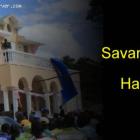Strong Administrator Louis Borno Rejects Free Elections
ADVERTISEMENT
Borno had served as Foreign Minister under President Theodore, refusing to cede control of Haiti's finances to the U.S. The U.S. responded by seizing the National Bank of Haiti's assets. Serving again under President Dartiguenave, Borno's skill as a negotiator persuaded the U.S. to commit to Haiti's economic growth, without receiving any land in the bargain. When Borno became president, Haiti was still debt-ridden. He brokered a loan of $23 million dollars to balance the budget and also lowered import taxes to equalize the trade deficit.
Borno did much good for the country as president. He made government funds available to repair roads, build bridges, and erect hospitals and schools. He imported fresh water from rural areas into urban cities. In a first of its kind, Port-au-Prince received phone service, and agricultural infrastructure was built up with more farmlands. Borno was shrewd about how to make education affordable. He used the resources of the Catholic Church in France, who sent contractors and educators to build an inexpensive school system.
But Borno refused to hold free elections, and hand-picked members of the Council of State to re-elect him. When the news media found out, they criticized him. His response was to jail reporters. By 1930, Borno's presidency ended when the ruling political party appointed an interim president.
Read more: United States, Haitian President, Louis Borno, People
Main | Role, Term of Haitian Presidents from Haiti Independence to 2013 »
Leave a Reply
Name (required) E-mail (required, will not be published)
» »
Our objective is to share with you news and information about Haiti and the people of Haiti. Traditions, habits and the way we were or grew are alive in this site. We highly recommend that you Subscribe to our Newsletter and also share with us some of the things that are memorable and made us unique people.


 The Town of Savanette, Haiti
The Town of Savanette, Haiti  Newsletter
Newsletter  Something to think about
Something to think about  Battle of Vertieres
Battle of Vertieres  Thomonde, Haiti
Thomonde, Haiti